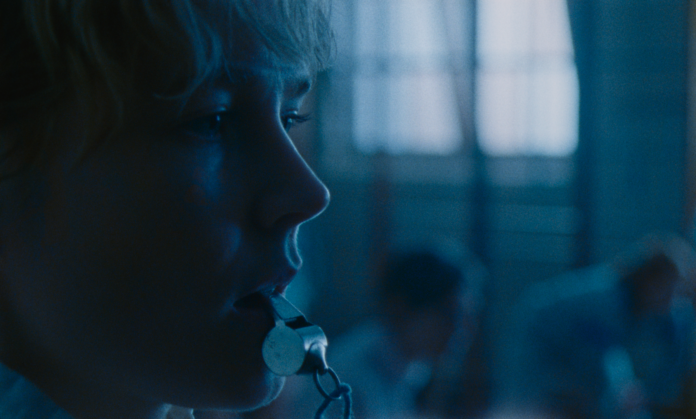
The Philadelphia Film Society is hosting a weekend film festival, “SpringFest,” at the Philadelphia Film Center, April 14-16. The program will showcase seventeen titles, many in advance of their forthcoming theatrical releases.
Three worthwhile films featuring LGBTQ characters and directed by out filmmakers will screen at SpringFest.
“Passages” is a compelling drama by director/cowriter Ira Sachs, who is a master of depicting codependent relationships (“Keep the Lights On”). Tomas (Franz Rogowski from “Great Freedom”) is a self-involved filmmaker who knows what he wants on set, but in real life, he is more impulsive and lost. With his marriage to Martin (out gay actor Ben Whishaw) feeling stale, Tomas finds excitement sleeping with Agathe (Adèle Exarchopoulos from “Blue Is the Warmest Color”) at a party for his latest film.
Martin is, of course, discouraged by this development, but he also understands Tomas, including how the filmmaker’s extreme mood swings dictate his heedless behavior. After Tomas decides to leave Martin and move in with Agathe — whom he says he loves — both of Tomas’ lovers are tested. Martin tries to move on and begins an affair with Amad (Erwan Kepoa Falé), a writer, but Tomas discovers this, he becomes jealous and keeps reentering Martin’s life, hoping to maintain some control over him. Agathe soon wonders if her relationship with Tomas will be stable.
Sachs shows the strengths and weaknesses of all three protagonists as they grapple with their complicated, and ever-changing emotions. Rogowski is a standout as a selfish man whose own discomfort drives him to behave badly, and Whishaw reveals Martin’s resilience as a man who tries to resist the magnetic pull of Tomas, even though he knows he’s trouble.
“Passages” is a shrewd and exacting study of amour fou.
“Kokomo City” is a fabulous, compassionate documentary directed by trans filmmaker D. Smith (her debut) about four Black transwomen spilling the tea about their experiences and observations about sex work, race, gender, masculinity, and much more. Shot in luminous black and white, the film opens with Liyah telling a wild story about one of her clients before the other subjects, Koko Da Doll, Dominique, and Daniella, discuss how they became involved in sex work. All talk about how men often meet them in secret and treat them poorly — exploiting or fetishizing them. (Violence occurs after the orgasm, one interviewee states, addressing some of the dangers these women face performing sex work.) The subjects also talk candidly about personal and professional survival, calling out a lack of agency and resources, and talking about their hope to exit sex work. “Kokomo City” shows its trans sex workers being real, and the reality of their Black womanhood as well as the fact that they are “not who their parents wanted them to be.” Smith’s frank and insightful film gives a voice to a much-maligned community. Moreover, she has selected four fantastic, compelling subjects to shed light on their lives.
“Blue Jean” is an intimate, engaging character study that probes the personal and professional crises of Jean (Rosy McEwen), a closeted lesbian in Newcastle, England in 1988, when Thatcher’s anti-LGBTQ law, Clause 28 — which prohibited the “promotion of homosexuality” — is in effect.
In her feature debut, writer/director Georgia Oakley tells Jean’s story in a way that boxes viewers in with Jean as she tries to keep her double life a secret. The film becomes suffocating as Jean makes poor decisions, acting out of self-preservation when it comes to her job as a secondary (high) school gym teacher and her relationship with Viv (Kerrie Hayes), an out and proud lesbian.
“Blue Jean” creates its central drama when Lois (Lucy Halliday), a new student, catches sight of Jean at a lesbian bar and Jean worries that Lois can destroy her life and career. Moreover, Lois’ fights with another student at school magnify Jean’s fears of being outed causing her to make questionable choices. McEwen delivers a star-making performance as Jean, and viewers will be riveted as this piercing character study unfolds.
Other films at SpringFest that should appeal to queer viewers include two documentaries on women in popular culture. “Judy Blume Forever” is an honest, funny, and touching portrait of the writer who influenced generations of young (and queer) readers with her honest, funny, and touching novels. Blume depicted puberty and sexuality in ways adolescents could relate to — and fans often corresponded with the author seeking a voice of reason and understanding. Blume’s story of her career is lovingly told, and fans of her books will adore it.
Likewise, “Being Mary Tyler Moore” examines the career of the iconic actress and role model who influenced a generation of women with the success of her eponymous TV show.
The full list of films and schedule, as well as tickets is available online.
